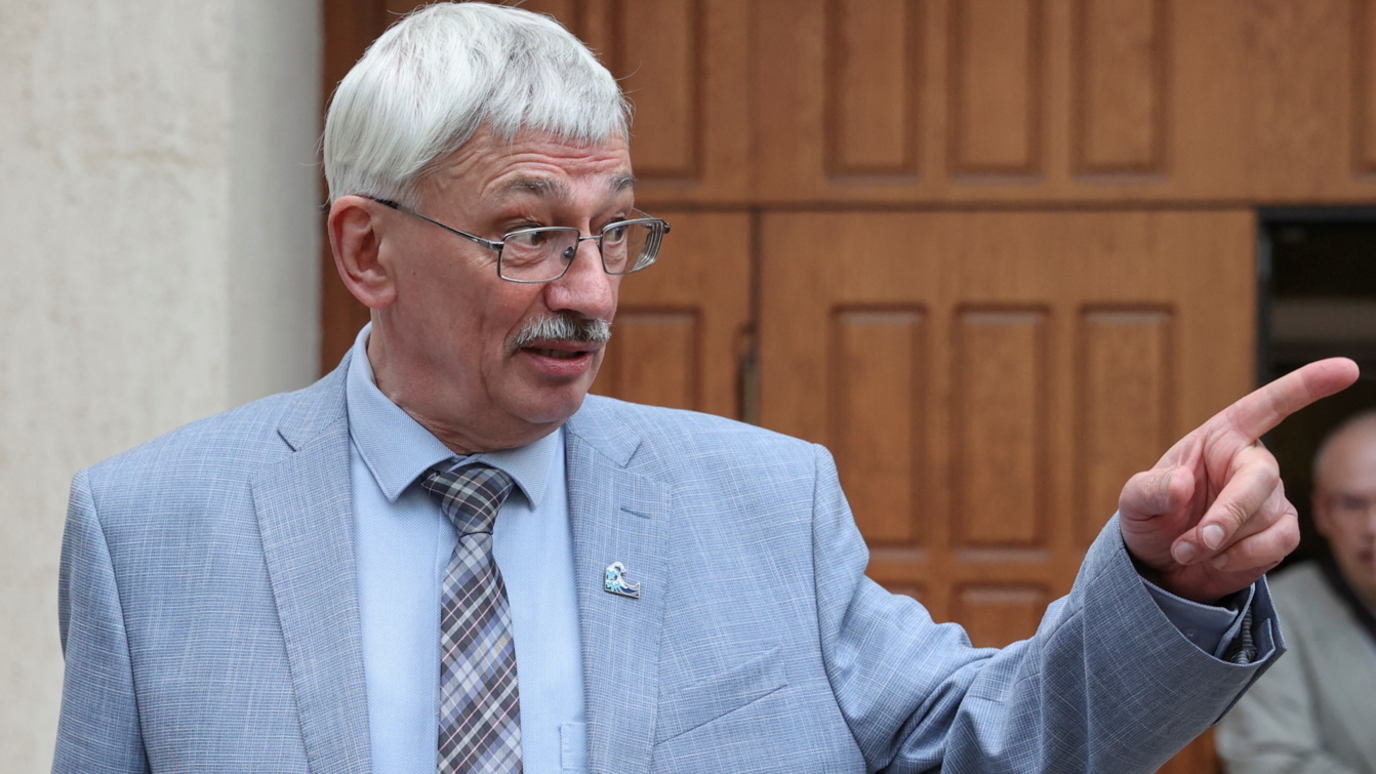Russian activist compares courts to Nazi Germany
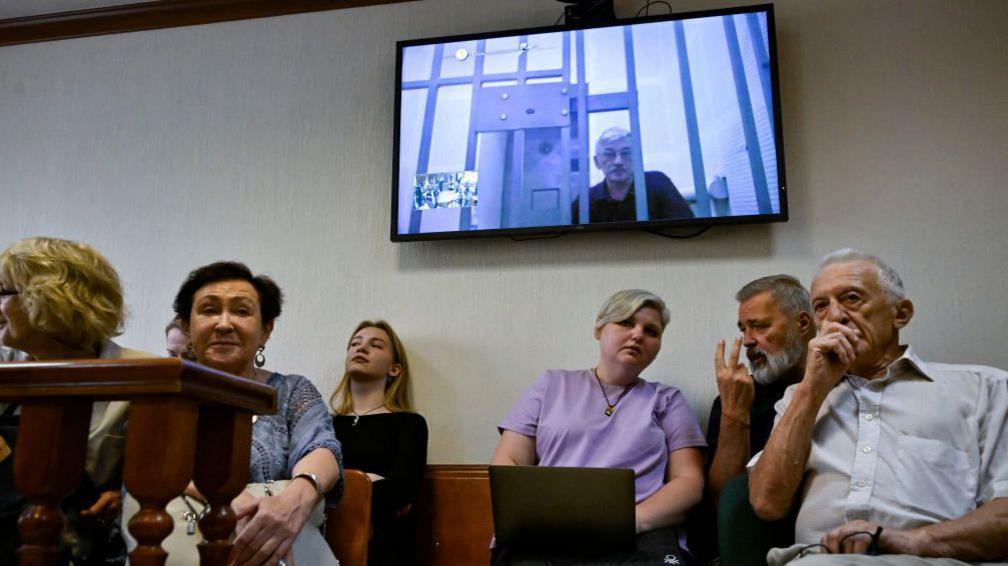
Oleg Orlov appeared by video link from central Russia
- Published
A Russian human rights activist has compared the country's judicial system to that of Nazi Germany.
Oleg Orlov, who was appealing against a prison sentence for discrediting the armed forces, quoted a US prosecutor at the Nuremburg trials as saying the Nazis totally destroyed justice and law during their rule.
Orlov, 71, who chairs the now banned human rights group Memorial, lost his appeal.
He was jailed five months ago for two-and-a-half years after calling Russia a fascist state and criticising the war against Ukraine.
The sentence was seen as a clear sign that Russia was increasingly cracking down on public dissent.
Speaking by video link from custody in the central city of Syzran, Orlov told the Moscow city court in his final statement that he regretted nothing and would not repent.
"I'm in the necessary place at the necessary time," he said. "When there are mass repressions in the country, I am with those who are being persecuted."
He also quoted a passage by Telford Taylor, a US prosecutor involved in the convictions of senior members of the Nazi regime after World War Two, who said: "They distorted, perverted and in the end achieved the total destruction of justice and law. They made the judicial system an integral part of the dictatorship."
"These words can be uttered now by any Russian political prisoner," he added.
"These words are surprisingly appropriate to characterise the current state of the Russian judicial system."
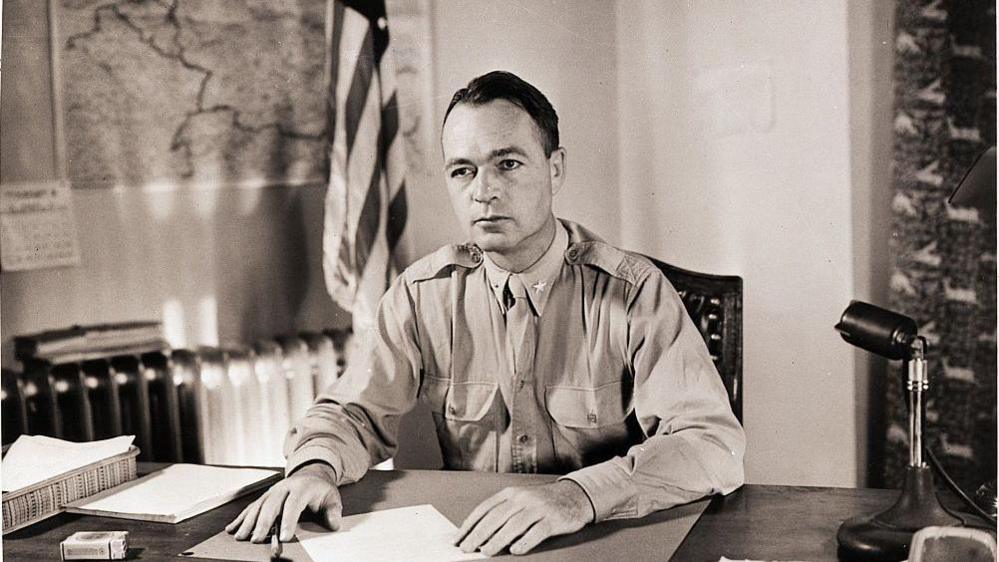
Orlov quoted Brig-Gen Telford Taylor, the chief US prosecutor at the Nuremburg trials
The appeal was attended by ambassadors from the US, UK and several other Western nations.
Orlov's conviction resulted partly from an article written for French media titled "They wanted fascism. They got it", about Russia's apparent descent into dictatorship.
His sentencing in February itself followed a retrial. In the original trial in October last year he received a 150,000 rouble fine (£1,290; $1,630) and walked free from the court.
However, prosecutors complained that the sentence was too lenient and a higher court cancelled the ruling.
Orlov has been an important figure in Memorial, which has for decades sought to preserve the memory of victims of Soviet oppression while also campaigning against human rights abuses in modern Russia.
In 2021 it was banned and dissolved in Russia but the following year received the Nobel Peace Prize jointly with the Belarusian activist Ales Bialiatski and the Ukrainian Center for Civil Liberties for demonstrating "the significance of civil society for peace and democracy".
Related topics
- Published9 July 2024
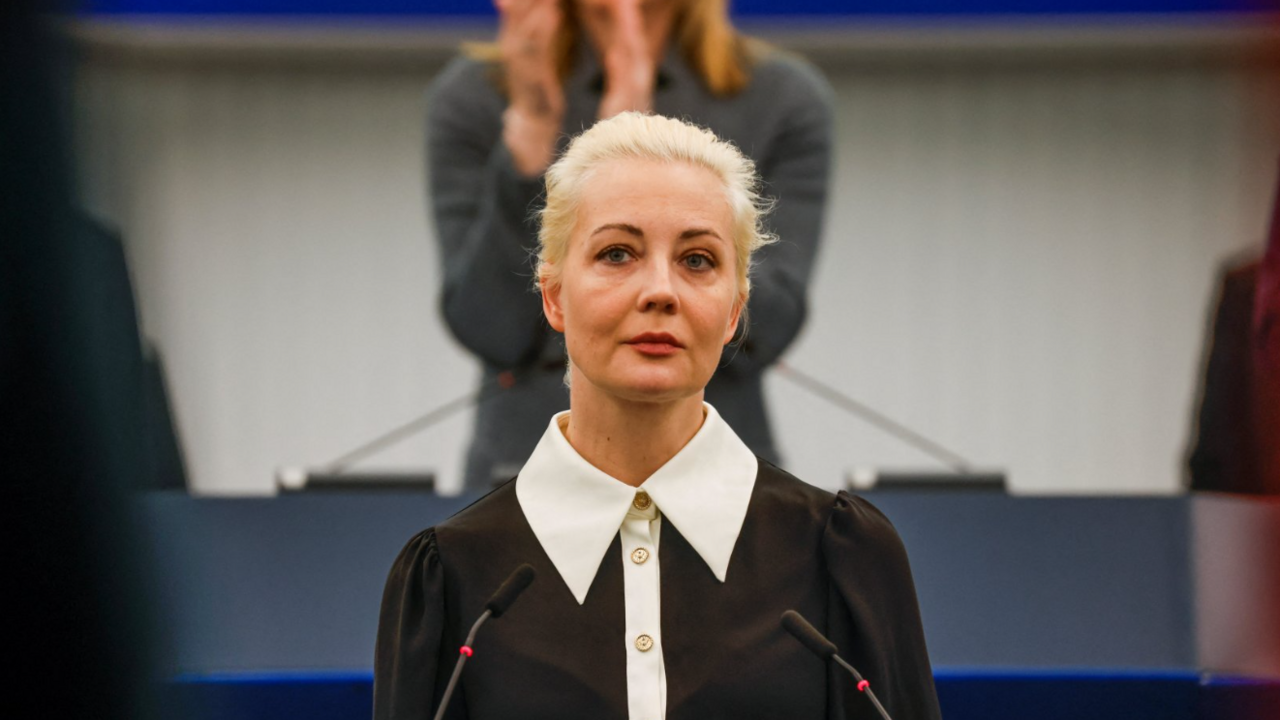
- Published25 February 2024
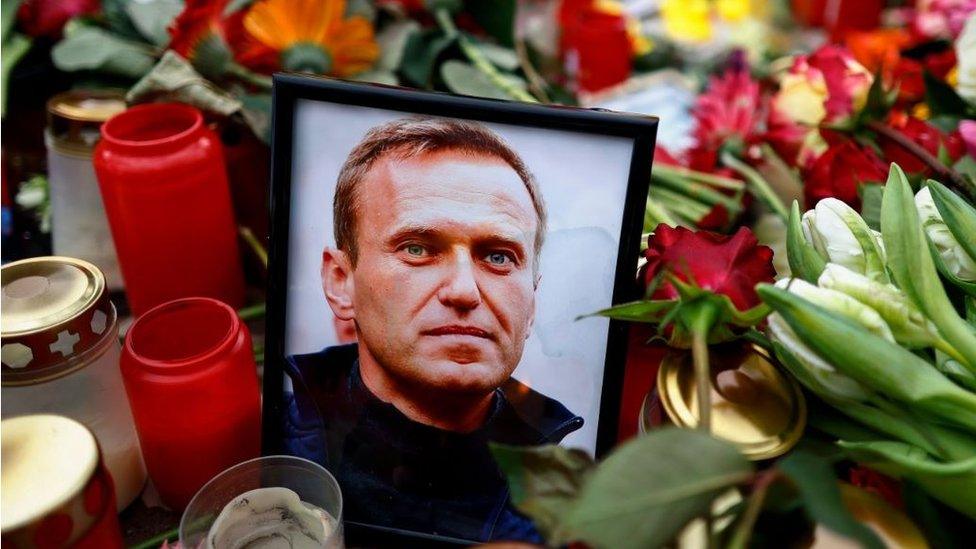
- Published9 June 2023
